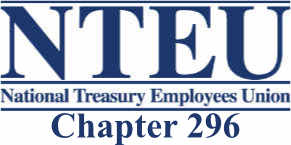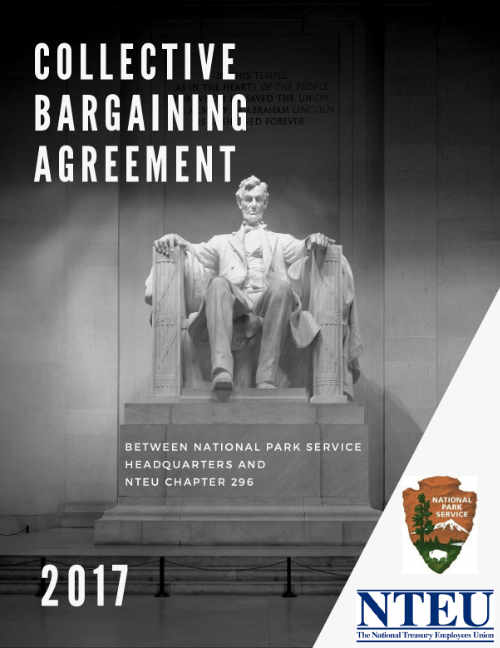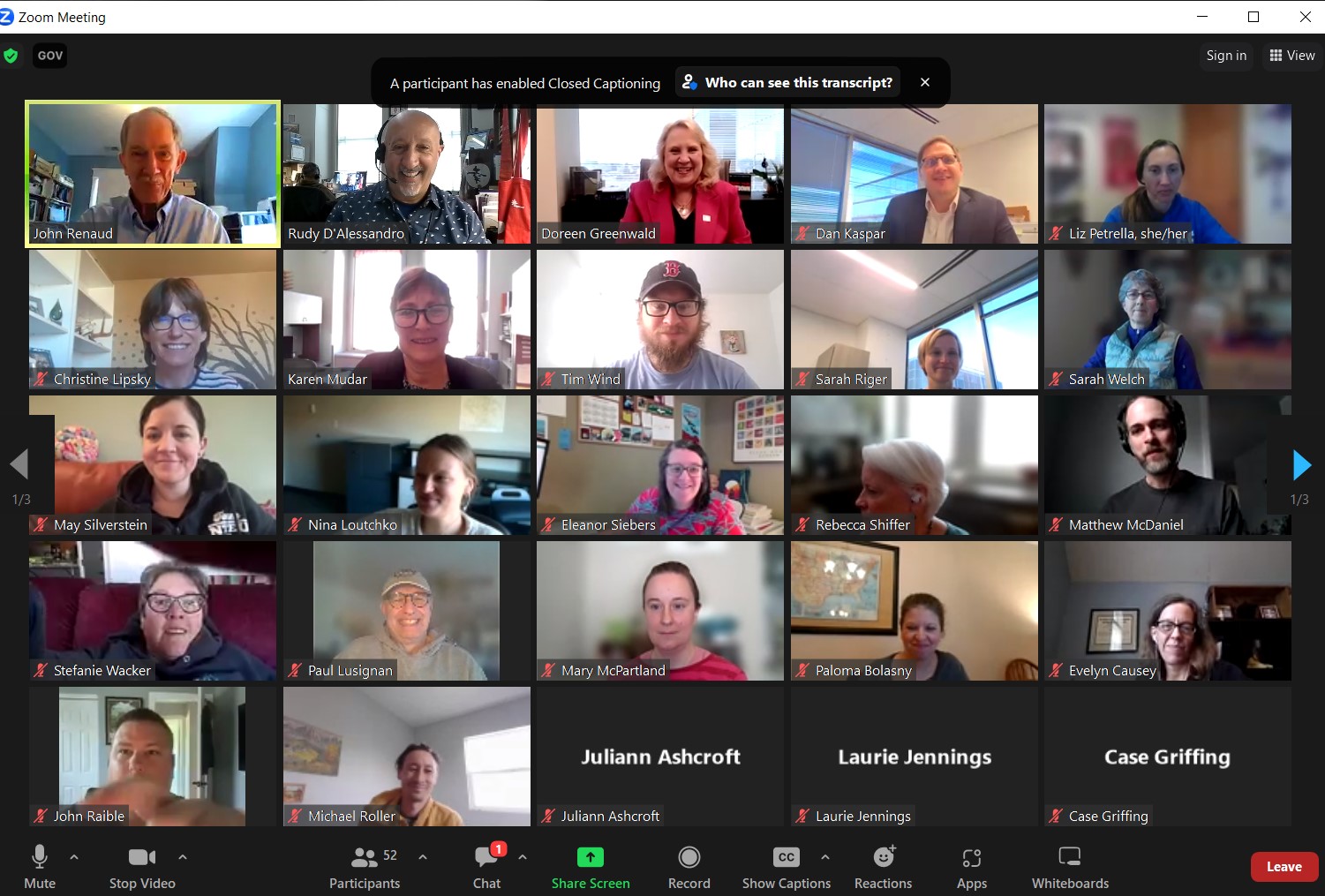|
NTEU Testimony on protecting federal workers
|
|
|
|
Statement on Frontline Feds Serving the Public During a Pandemic 6/25/2020 HOUSE SUBCOMMITTEE ON GOVERNMENT OPERATIONS COMMITTEE ON OVERSIGHT AND REFORM Chairman Connolly, Ranking Member Hice, and distinguished members of the Subcommittee, thank you for the opportunity to submit this statement for today’s hearing. As National President of the National Treasury Employees Union (NTEU), I have the honor of leading a union that represents 150,000 dedicated federal employees across 33 agencies. From the beginning of this pandemic, NTEU has been focused on how best to protect the health and wellbeing of federal workers while maintaining essential government functions. We strived to work closely with agencies to ensure the safety of our members. While some were quick to act, other agencies lagged behind. The level of response and communication with employees was inconsistent, leaving many employees confused and increasingly concerned about their safety and that of their families as they tried to follow guidance from the Centers for Disease Control and Prevention (CDC). NTEU quickly urged the government to:
These steps were necessary to ensure not only employee safety, but also to ensure that employees remained healthy and able to help agencies meet their missions, such as completing the current tax filing season, keeping the ports operational, and conducting potentially life-saving medical research. For example, at the IRS, agency leaders were slow to respond to employee questions and seemed to change guidance to employees on a daily basis. Daily conference calls were initiated with the IRS to more quickly address employee questions and concerns. Over time, IRS did expand telework for many employees, closed offices, and provided WSL for those without portable work. On March 20, the IRS officially extended the federal income tax filing deadline from April 15, to July 15, 2020, allowing for more flexibility to employee work schedules. Automatically extending the deadline for everyone helped protect the men and women who work on the frontlines at the IRS, opening mail, providing customer service and handling tax documents. With less of a time crunch, the agency is able to gradually ramp up agency operations in a way that keeps employees at a safe physical distance from each other at the workplace. It also buys the agency more time to acquire adequate supplies of personal protective equipment and build work schedules that allow for thorough cleaning and disinfecting between shifts. However, NTEU has continued to call for the deadline be extended to October 15, which is the deadline for anyone who asks for an extension in a normal tax filing season. Just because the IRS implemented flexible work arrangements and delayed the tax filing deadline does not mean that IRS employees were not working. In addition to processing returns that came in and answering questions from the public, IRS employees worked around the clock to successfully launch and deliver ahead of schedule the Economic Impact Payments created by the Coronavirus Aid, Relief, and Economic Security Act or the CARES Act, which were sent to millions of taxpayers. These payments were desperately needed by people impacted by the coronavirus. Meanwhile, at the start of this pandemic, airports and land border crossings were fully staffed and personnel were interacting with international travelers, many of whom came directly from or had recently traveled to places where the virus was already being widely transmitted between individuals. And as volume of travelers fell, by over 90 percent for international travelers at airports and as much as 75 percent at crossings at the northern and southern ports of entry, CBP Office of Federal Operations (OFO), after urgent discussions between employee representatives and management, began adjusting work schedules by providing some WSL for CBP Officers and Agriculture Specialists in order to limit exposure to the virus and to more fully comply with CDC guidance. Under the revised schedules, CBP employees who were on leave were subject to recall and ready to return to the port at a moment’s notice, should the need arise. After initially permitting WSL at the northern and southwest border land ports, to NTEU’s great consternation, in early April CBP unilaterally cancelled the use of WSL at the land ports. Therefore, for the most part, CBP Officers at these land border crossings have continued to come to work throughout the last three months of the pandemic at great risk to their health and safety. At the same time, CBP has resisted providing WSL to symptomatic employees who are still working from home, saying they must take sick leave. Ensuring agencies have the tools and resources to permit telework, ensure safe and clean worksites, and mandate social distancing is essential to protect federal workers. Case in point: as of June 22, more than 2 million Americans have been infected with COVID-19 and more than 120,000 U.S. residents have already died from this virus, including many federal employees. We grieve those civil servants we have lost, including those from agencies where we represent employees, such as the IRS, CBP, and SEC. We are heartbroken for their families and their coworkers and together we mourn the loss of these devoted employees and are deeply grateful for their service to our nation. With the number of infected Americans continuing to rise and a number of states and localities reopening, some federal agencies are increasing their effort to call their employees back to their worksites. Understandably, many federal employees have expressed a significant amount of anxiety and fear about their ability to return to work safely and I commend the Subcommittee for holding this hearing and closely monitoring agencies’ return plans. In particular, I want to thank you, Mr. Chairman, for your letters last week to agency Inspectors General urging them to oversee agency efforts to bring employees back to their worksites. At the IRS, in late April the agency began soliciting volunteers from those who had been unable to work remotely to return to perform mission critical work across the ten campus sites (Andover, Atlanta, Austin, Brookhaven, Covington, Fresno, Kansas City, Memphis, Ogden, Philadelphia). Employees at these campuses are focused on mission critical activities such as processing paper tax returns and other mail and ensuring taxpayers receive answers to their questions. IRS offered a 10% retention incentive payment to all volunteers and a 25% incentive payment for mail processing clerks, for two pay periods, to entice them to return. In May, the IRS announced it was seeking approximately 7,000 Customer Service Representatives at 22 remote call sites located nationwide. These volunteers, requested from those employees that were not able to telework, began reporting to work on May 11, and are focused on answering taxpayer questions related to the filing season. On June 1, IRS employees with non-portable work in Kentucky, Texas and Utah were called back to work. This includes roughly 5,400 employees, which is the maximum number of employees IRS has determined can be recalled and still maintain adequate social distancing (6 feet of separation) in their worksites. Two days later, the IRS announced additional employees who are currently on weather and safety leave with non-portable work would be called back to work in June in two distinct waves. Employees in Michigan, Georgia, Missouri and Tennessee were recalled as of June 15 and on June 29, employees in California, Indiana, Ohio, Puerto Rico and Oregon will return to work. These areas include call sites and processing centers. Last week, the IRS announced that the remainder of employees across the country who are unable to work remotely will be called back to their worksites on July 13, 2020. Employees who are currently teleworking will continue to do so and those who are considered high risk for contracting the virus will be allowed to remain on weather and safety leave. While the IRS has taken steps to protect employees who are coming back to the worksites, the IRS must do more. Some locations still lack sufficient disinfectant wipes and/or hand sanitizer. NTEU continues to call on the IRS to take employee’s temperatures at work instead of relying on employees to “self-assess.” We are also concerned about cleanliness at IRS offices. For example, when an employee tests positive, the IRS is only shutting down for 24 hours and cleaning the immediate area the employee accessed, as opposed to shutting down the entire building. And even this is determined on a case by case basis. If an employee who tests positive for coronavirus has not been to a facility in the previous 7 days, the IRS is not doing any additional cleaning at that facility. After some initial reluctance to shut down parks and monuments, the National Park Service and the Interior Department have generally worked with NTEU in a constructive way throughout the pandemic. For instance, they recently updated authorization for supervisors to grant paid excused absences to employees (20 hours per pay period for full-time and pro-rated for part-time employees) who need to provide childcare or care for other dependents as a result in a lapse in care arrangements related to COVID-19. This has been extended indefinitely until normal care options return locally and is retroactive to May 23, 2020. In addition, NTEU has worked with NPS to support maximum flexibility for employees during the pandemic, e.g. telework and core hours. Management has authorized supervisors to exercise maximum flexibility during the pandemic, in their localities, and an adaptive recovery plan is now in effect for the NPS, which includes a requirement to consult with unions on actions related to a return to federal workspaces. The Federal Law Enforcement Training Center (FLETC) has also reopened on a limited basis. NTEU has been told that students will be screened upon returning, quarantined for 14 days prior to the commencement of formal class training, tested twice during the quarantine period, and be provided ample PPE. In addition, class sizes will be smaller and other additional new practices have been put in place to ensure social distancing. Nevertheless, we have concerns about staff and instructors leaving at the end of each day and the chance that they could then bring the virus into the classrooms. We have raised those concerns and FLETC has agreed to at least testing high contact instructors (e.g. PT and Firearms) weekly, but we still are concerned that is not enough. As agencies continue the process of bringing employees back to their worksites, NTEU continues to call for agencies to take steps to ensure a safe return, including the following safeguards:
In addition to Congressional support needed to ensure agencies are taking the necessary steps to safeguard employees until an effective vaccine is made available, legislation is also needed to further support employees. NTEU applauds the House for passing last month a fourth coronavirus legislative relief package that includes NTEU-backed provisions supporting and protecting federal employees during the pandemic. The Health and Economic Recovery Omnibus Emergency Solutions (HEROES) Act, H.R. 6800, includes several NTEU-supported provisions, many that you, Mr. Chairman and members of this Committee have championed, that would help federal employees, including:
As Congress continues negotiations on legislation to respond to the impacts of the COVID-19 pandemic, we ask that you include additional language supporting federal workers, many of whom are on the frontlines and bear a significant share of the burden in responding to this crisis. Legislation is also needed to address the need for expansion of carry over annual leave hours due to the inability of federal workers to take annual leave during the pandemic. Under current law, carry over hours are limited to 240. Many federal employees have cancelled their scheduled vacations this year due to pandemic related inability to travel, destination shutdowns and required quarantines. We believe the earned annual leave of employees who are unable to take leave as they continue the important work of government and adhere to stay at home orders should be protected beyond the 240-hour limit. NTEU supports Representative Wexton’s bill (H.R. 6733) to ensure at least frontline workers responding to the pandemic can carry over excess annual leave and appreciate OPM’s recent announcement they will issue regulations to ensure at least some employees are able to carryover excess leave. Nonetheless, we urge Congress to pass Representative Wexton’s bill and to extend this benefit to all federal workers. While many federal employees would be eligible for additional pay from the Heroes Fund included in the HEROES Act if it were enacted, NTEU believes many federal personnel should already be eligible to receive hazardous duty pay under existing law. For example, because of the nature of their jobs, many CBP employees have regular contact with the public and it is difficult to practice social distancing while working at the air, sea, and land ports of entry. According to the Schedule of Pay Differentials Authorized for Hazardous Duty Pay, one such hazard is: “Exposure to Hazardous Agents, work with or in close proximity to… (5) Virulent biologicals. Materials of micro-organic nature which when introduced into the body are likely to cause serious disease or fatality and for which protective devices do not afford complete protection.” NTEU submits that COVID-19 exposure falls within this hazard, but to date, CBP and other federal agencies have said that it does not, and has not paid either Hazardous Duty Pay or Environmental Differential Pay to those employees that are exposed to COVID-19 because of their work. NTEU urges Congress to pass a provision, like that in H.R. 6379, which would clarify that employees who have contact with the public and may be exposed to an individual who has or has been exposed to COVID-19 are eligible for this pay differential. In closing, we all understand federal workers’ anxiety about their own safety during this pandemic as they work to provide essential government services. Therefore, it is important that we continue to work together to do everything we can to mitigate the risks they face and provide them with the flexibility and the resources needed to protect them, their families, and their colleagues. We deeply appreciate your efforts to support and protect federal employees throughout this crisis and encourage you to continue to provide strong oversight to help ensure the safety of all federal employees in this unprecedented time. ---------------- You can also download this testimony as a Word document Download: |
|
| |




.jpg)
